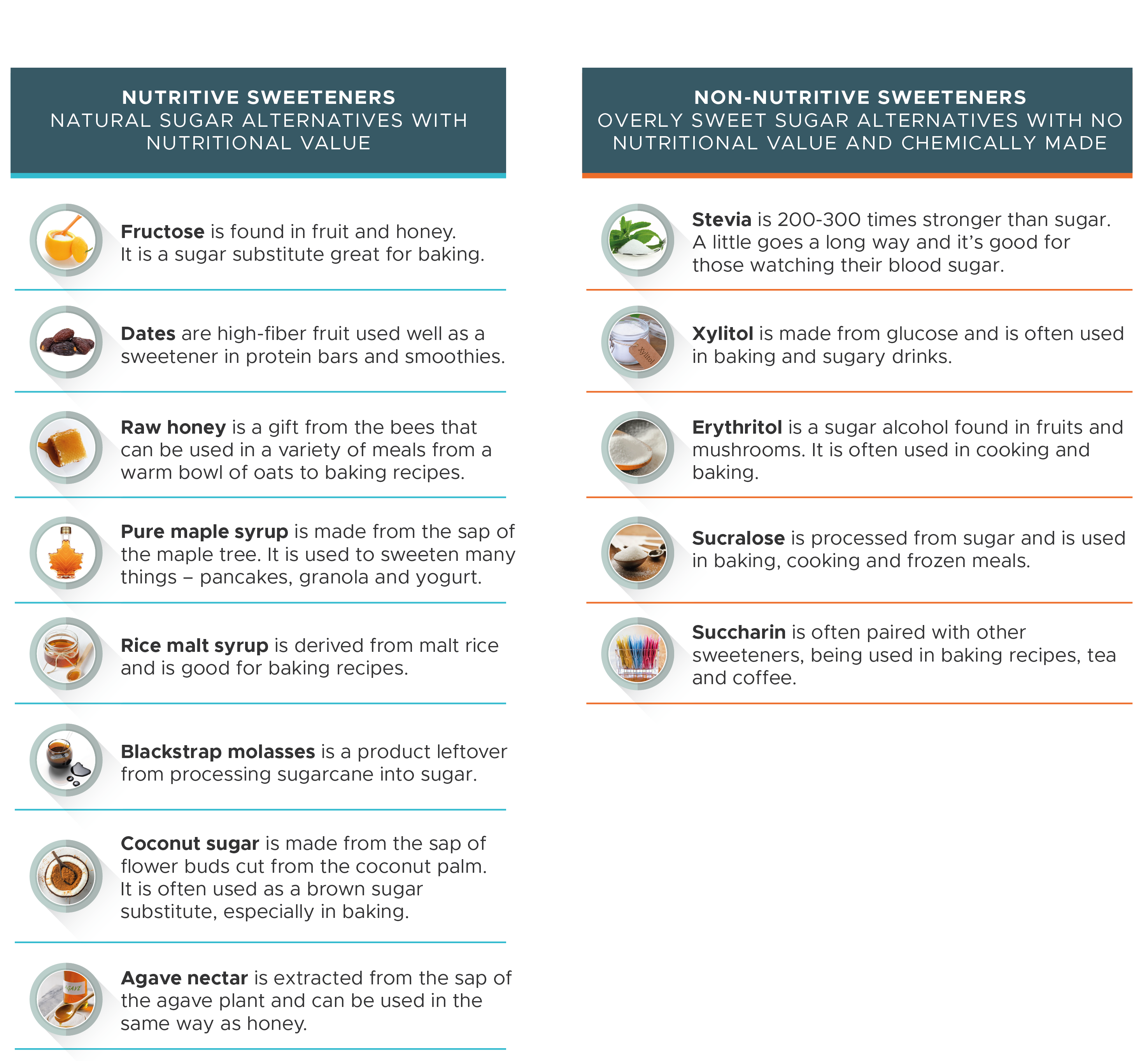More and more alternative sweeteners are being added to foods and beverages over the past few decades. Your healthcare practitioner may have recommended them to you as a “sugar-free” or “low sugar” “diet” option. Maybe you’ve decided to consume (or avoid) them yourself. It’s even possible that you’re eating and drinking them without knowing it.
But what are the good and bad things you should know about them?
WHAT ARE 'ALTERNATIVE SWEETENERS' ANYWAY?
There are many different kinds of alternative sweeteners. These are sometimes called “artificial sweeteners” or “non-nutritive sweeteners”. They are found in most “diet” foods and beverages. The other option is “nutritive sweeteners” that are trending in the food industry as the healthy alternatives to both artificial sweeteners and regular cane sugar.
Here’s our list of common non-nutritive and nutritive sweeteners and what they’re good for:

You may recognise the artificial ones by the label, as aspartame (Equal, NutraSweet), sucralose (Splenda), saccharin (Sweet’N Low), or acesulfame-potassium (Ace K, Sunett, Sweet One). The natural ones are obvious.
THE SWEET AND THE NOT-SO-SWEET
- Most alternative sweeteners are safe when consumed in small amounts.
- Non-nutritive sweeteners have no calories and nutritive sweeteners are less processed that refined sugar.
- There are some concerns linking artificial sweeteners to cancer, but there is no definitive research.
- Despite having no calories, artificial sweeteners haven’t been found to reduce overall calorie intake, help you lose weight, or lower your risk of obesity or diabetes.
In fact, new research shows possible links between artificial sweeteners and increased risk of conditions like high blood pressure, diabetes, heart disease, dementia, and stroke. Some animal studies show that they may even affect the friendly gut microbes as well.
WHY THEY AREN'T ACTUALLY A SOLUTION
Researchers don’t know exactly why these health concerns are showing up for alternative sweeteners but there are a few ideas. There may be some people who eat excessive or unhealthy foods and choose diet sodas to “offset” their bad habits. Others may think that by consuming “diet” goods, or things with “natural sugar” they can eat more food.
THE BEST SWEETENERS
Overall, you can probably consume small amounts of alternative sweeteners safely, however they may not help you reach any health goals. The best sweeteners, by far, are fresh or frozen fruit – especially bananas. Or if you’re looking for a sweet in bitter coffee opt for coconut sugar to get that caramel taste. Be wary, because sugar is sugar, but if you need to make a change, replace the refined sugar with the many options out there.

Comments